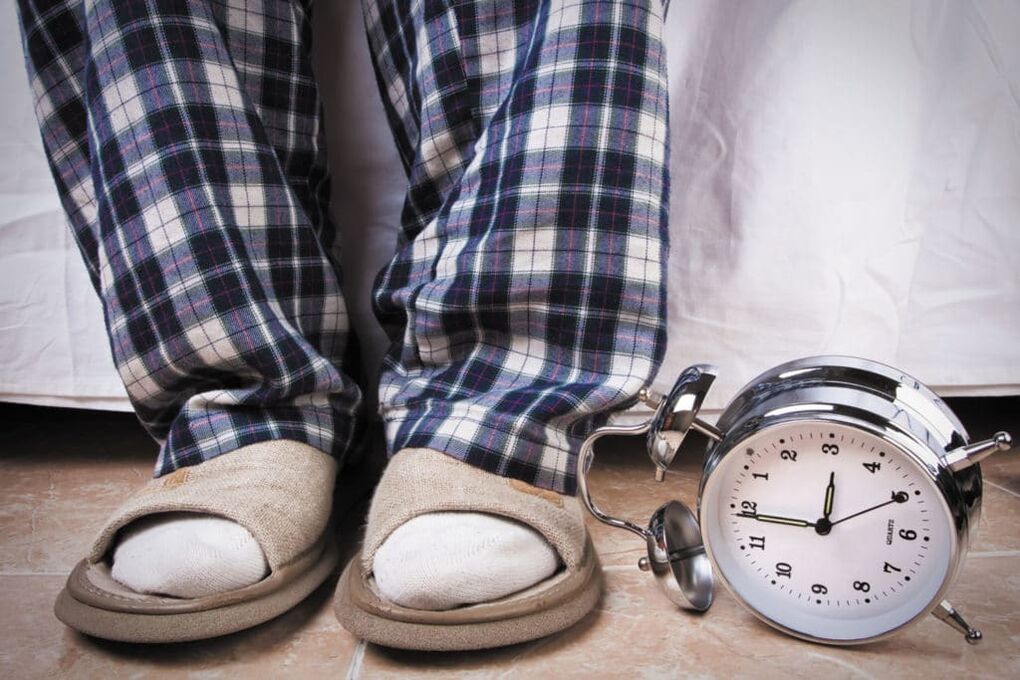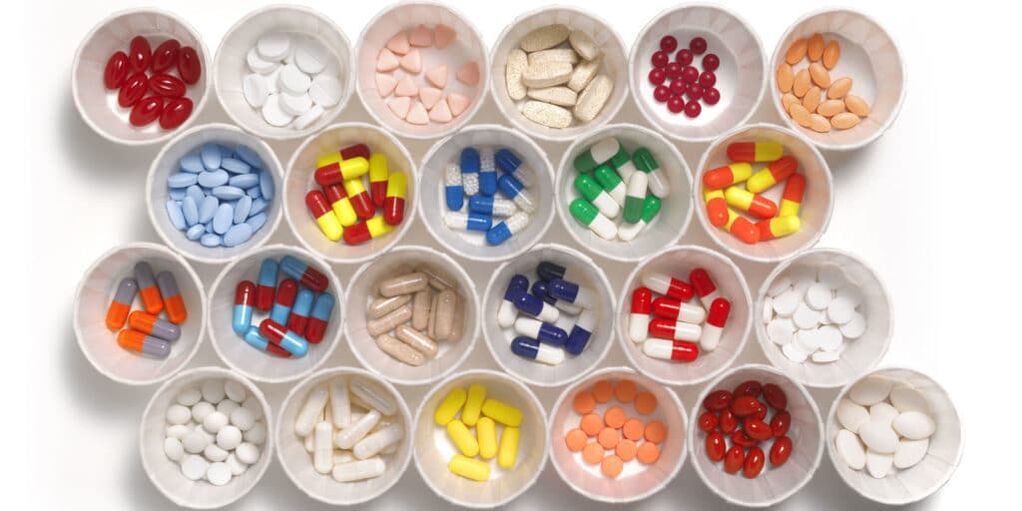Prostatitis is an inflammatory disease of the prostate that primarily affects older men. According to statistics, one form or another of the disease is diagnosed in almost 40% of men over the age of 50. Congestive prostatitis is a non-infectious inflammation of the prostate caused by a violation of the trophism of the organ.
What is congestive prostatitis?
Congestive prostatitis is caused by a violation of the trophic processes in the prostate gland and pelvic organs. Trophism refers to all the metabolic processes that take place in the organs - blood circulation, lymphatic movement, the dynamics of prostate secretion.
The disease is characterized by a number of specific symptoms caused by edema of the inflamed organ. Due to the stagnation of secretions in the prostate, the lobes are not completely emptied, leading to inflammation and enlargement of the organ. As a result of these processes, the prostate presses on the bladder and urethra, which explains the onset of symptoms of the disease.
Unlike the acute form of inflammation caused by pathogens, congestive prostatitis can last for many years without severe symptoms. During this period, there is a gradual violation of the trophism of the prostate, the organ is depleted, and over time the disease suddenly worsens.
Congestive prostatitis is usually diagnosed accidentally, during a routine examination by a urologist, or during an exacerbation when a man is experiencing pronounced symptoms.
The disease requires long-term complex treatment. The prognosis for recovery depends on the timely detection of congestive prostatitis. In some cases, men live in chronic inflammation for decades, forced to undergo regular treatment to avoid the disease getting worse.

Stagnant prostatitis develops asymptomatically for years. It will also take a long time to treat.
Reasons for development
Congestive prostatitis or chronic, non-infectious prostatitis is a direct consequence of a poor lifestyle. Disruption of the metabolic processes in the prostate develops over a long period of time. The causes of the disease are:
- hypodynamics;
- obesity;
- malnutrition;
- sexual abstinence;
- chronic stress;
- bad habits;
- flebeurism;
- chronic constipation.
The main enemy of prostate health is physical inactivity. Lack of physical activity leads to deterioration of blood circulation in the lower body, including the pelvic organs, which over time causes thickening of the prostate secretions and the development of an inflammatory process.
Physical inactivity with a lot of excess weight is a direct pathway for prostatitis. It is no coincidence that stagnant prostatitis is considered a disease of office workers, as those who sit at a table for long hours cause circulatory problems in the pelvis and prostate area.
Chronic stress, decreased immunity, and lower body hypothermia are all indirect causes of prostatitis. In the case of a stagnant, slow inflammatory process, these factors cause the symptoms of the disease to worsen.
Another enemy of men’s health is chronic constipation. Difficulties, irregular bowel movements lead to the fact that thick stools passing through the intestines irritate the prostate. At the moment of bowel emptying, trophism is disturbed. In rare constipations, this is not dangerous, but regular bowel movements lead to prostate irritation, which leads to the development of prostatitis.

Congestive prostatitis is a common problem among office workers.
Why is prostatitis dangerous?
Congestive prostatitis is accompanied by specific symptoms that significantly impair a man’s quality of life. In addition to constant discomfort, the disease progresses, leading to dangerous complications.
First, the potency suffers. Violation of blood circulation, thickening of secretions, and violation of the contractile function of the prostate gland result in the fact that sex does not cause pleasure but is accompanied by discomfort and pain. Over time, the problem worsens, so in addition to weakening libido, erectile dysfunction also occurs. There is not enough blood flowing into the penis, which leads to a weakened erection and threatens with erectile dysfunction.
Congestive prostatitis can cause infertility in men.
A fairly common complication of mild inflammation is reflux of urine, which can cause kidney infection and pyelonephritis.
Lack of timely treatment of congestive prostatitis can lead to the formation of tartar in the prostate gland, the removal of which often requires surgery.
Symptoms of the disease
Symptoms of congestive prostatitis are manifested by urinary incontinence. In addition to worsening the disease, we feel heaviness in the bladder, frequent stimulation of toilet use, and weakening of urinary pressure. Occasionally there may be bladder pain that extends to the lower abdomen and perineum. The pain is convulsive in nature, convulsions appear and subside.
Problems with potency and ejaculation occur in men with congestive prostatitis. In this case, both an increase in the duration of sexual intercourse and premature ejaculation are possible. The climax is accompanied by pain in the urethra.
Signs of prostatitis with congestive prostatitis intensify during exacerbation. This occurs as a result of decreased immunity, severe stress, overwork, or hypothermia. The symptoms are acute. The number of urination stimuli can be up to 8 times per hour. Emptying the bladder does not bring relief as it feels heavy and full. Pain syndrome is acute, with a feeling of heaviness in the rectum caused by prostate edema. In rare cases, haematuria - blood in the urine - may occur. After urination and ejaculation, there is pain and a strong burning sensation in the urethra.
Congestive prostatitis is not a bacterial inflammation, so an increase in temperature with this form of the disease is extremely rare. However, due to the constant discomfort in the perineum, symptoms of general malaise can be observed - drowsiness, irritability and loss of strength. The course of congestive prostatitis is often exacerbated by insomnia, which results from an increase in the stimulus to use the toilet at night, caused by swelling of the prostate in the evening and at night.

Frequent urination does not mean relief or sleep
Diagnostics
Congestive prostatitis is diagnosed by a rectal examination of the prostate gland by a urologist. This is done by massaging the prostate or TRUS.
Ultrasound diagnosis is considered an informative method because it indicates the presence of inflammation but not the nature of its development. For this reason, the most informative is the analysis of prostate secretion. Due to the nature of the changes in the composition of prostate secretion, congestive prostatitis and its complications are diagnosed.
Prostate MRI is also prescribed to rule out adenoma and other disorders.
Principle of treatment
Treating congestive prostatitis is a lengthy process. The goal of therapy is to relieve inflammation and edema, improve urodynamics, and restore metabolic processes in the body.
In addition to specific therapy, patients are prescribed diet, exercise therapy, and physiotherapy. All of these methods serve one purpose - to normalize the outflow of prostate secretions and to improve blood circulation in the organ.
Drug therapy
In the case of congestive prostatitis, treatment includes symptomatic and specific therapy.
Symptomatic treatment includes the use of anticonvulsants, analgesics, and nonsteroidal anti-inflammatory drugs. Such medications can relieve pain and discomfort, improve urination, but do not affect prostate function.
Unlike infectious prostatitis, no pathogens are detected in the case of congestive inflammation of the prostate secretion, so antibiotic therapy is not appropriate.
The following are used for treatment:
- alpha-blockers;
- antispasmodics;
- non-steroidal anti-inflammatory drugs;
- phytopreparations;
- rectal suppositories to restore prostate function.
Taking alpha-blockers improves urodynamics. These drugs have a muscle relaxant effect, reducing the tone of the bladder, which makes it easier to urinate. In the case of congestive prostatitis, treatment with these drugs is practiced for a short time due to the many side effects.
Non-steroidal anti-inflammatory drugs are used to relieve inflammation in the form of tablets or suppositories. The treatment lasts for up to a week, 1-2 suppositories a day. It reduces inflammation and swelling of the prostate and relieves pain. Injections of NSAIDs can also be practiced, but only as directed by your doctor.
Traditional antispasmodics can help relieve bladder and perineum pain. Take one tablet as needed, but no more than three times a day.
The main part of the treatment of congestive prostatitis is the use of herbs, vitamins and immunostimulants, the effect of which is to restore the prostate gland.
Therapy can be supplemented with phytopreparations in candles with bee products, ichthyol or pumpkin seed oil. You can buy these medicines at the pharmacy or make them yourself. They have anti-inflammatory properties and stimulate the immune system.
You should consult your doctor about the treatment of congestive prostatitis. The duration of treatment depends on the severity of the symptoms, but usually lasts at least three months.

The main goal of therapy is to restore glandular trophism.
Folk remedies
You can supplement the treatment with folk remedies. The following recipes will help treat prostatitis.
- Eringium or erythematosus with congestive prostatitis can relieve inflammation and speed up prostate recovery. The root of the plant is used for treatment. Dry and chop with a knife. Then pour 30 g of root with three glasses of hot water and simmer for half an hour, avoiding boiling. Strain the broth and take half a glass every day for a month.
- Propolis and honey candles help relieve inflammation. To prepare, melt 200 g of badger fat, add 40 ml of propolis tincture and a large spoonful of honey. The mass is poured onto foil and left in the refrigerator. When the product has solidified, cut it into small pieces in the shape of a torpedo with a small finger. These suppositories are stored separately in the refrigerator. The treatment lasts for three weeks, the suppositories are inserted into the anus at night, once a day.
- You can use cocoa butter and pumpkin seed oil to make the candles. Proportions - 10 ml of pumpkin seed oil per 100 ml of cocoa butter.
Folk remedies can also be used to prevent the worsening of prostatitis. In this case, the duration of treatment is reduced to two weeks.
Massage and physiotherapy
In case of congestive prostatitis, prostate massage and physiotherapy are prescribed to improve circulation. The massage consists of 10-15 procedures.
Physiotherapy methods are selected by your doctor. Acupuncture, hirudotherapy, electrophoresis, magnetotherapy, darsonvalization are commonly used for prostatitis. Good effects can be achieved with ultrasound and shock wave therapy.
In addition, there are a number of machines for treating prostatitis suitable for home use. Consult your doctor before purchasing such a device.
Lifestyle and prevention
Avoiding bad habits and a balanced diet will help speed recovery from prostatitis. Natural prostate protectors should be included in the diet - pumpkin seeds, pumpkin seed oil, honey, citrus fruits, nuts.
You need to normalize your daily routine and exercise regularly. Regular sexual activity plays an important role in the treatment of congestive prostatitis, as sex eliminates the cause of the disease - stagnation of prostate secretions.
Once you have figured out what congestive prostatitis is, you need to know how to prevent it from developing. Prevention of the disease is limited to a careful attitude towards their own health. In order for the prostate to be healthy, moderate but regular physical activity must be provided, hypothermia of the pelvic organs must be prevented, and the immune system must be strengthened.
























